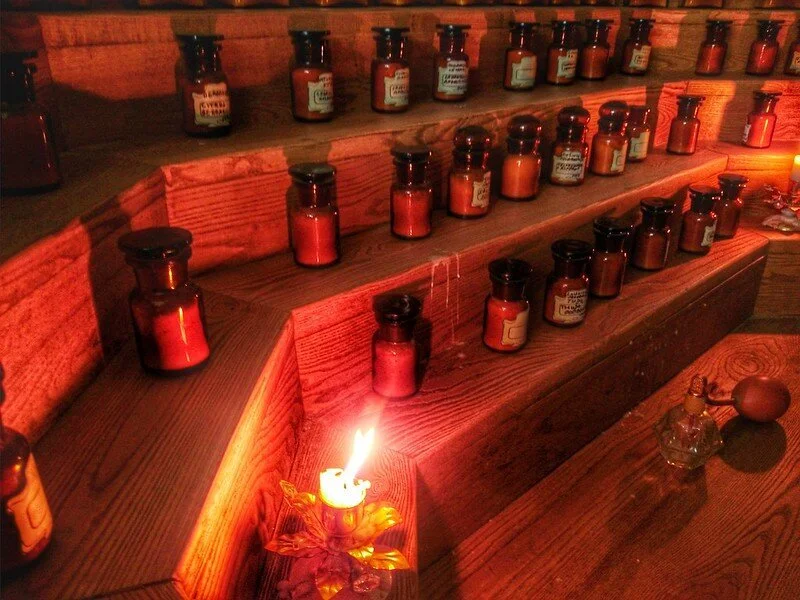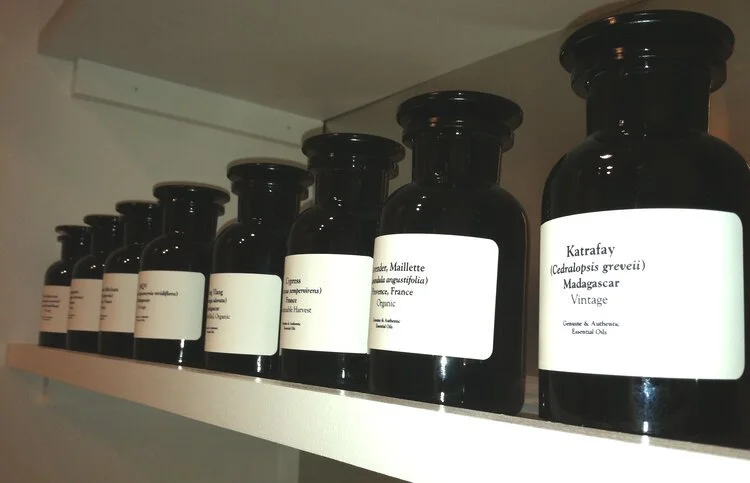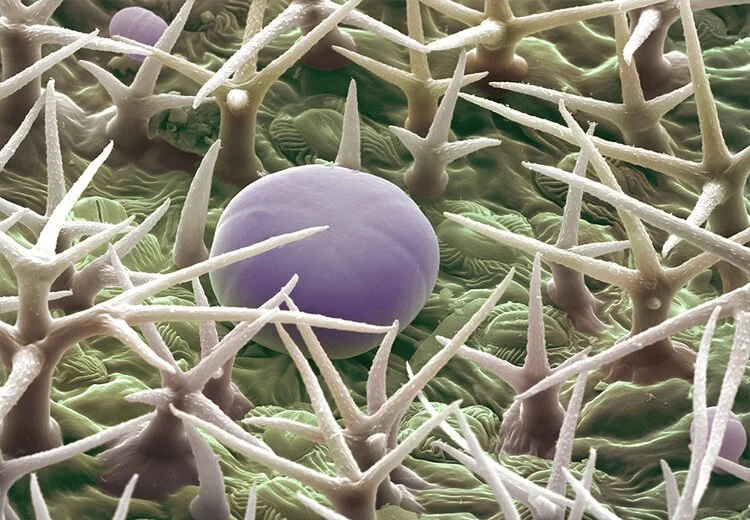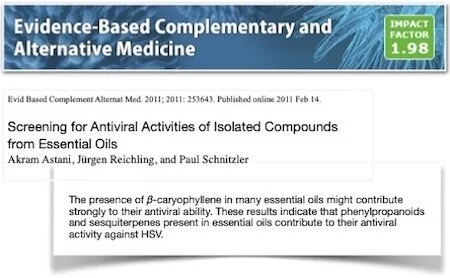Don't Believe in Essential Oils or Naturals, Science, Politics: A Philosophy
Essential oils are a chemical substance derived from a biological botanical source. They are not a religion. They are not something to believe in. The same goes for all substances derived from a plant or true-to-nature source. The belief being that these botanicals have therapeutic or health providing activity. Seems that in order for a “natural” to be therapeutic it has to be believed in. A contrasting common belief shared among the mainstream is that naturals cannot have healing properties due to a belief it is not scientific. The not scientific belief is supported by media and political points of view, really a corporate platform, which become laws and stories alerting the public in what to believe. Believing in essential oils and naturals, or not, has become a rather confusing conglomeration of skewed concepts, distorted or limited science, and, maybe most influential, a result of marketing.
BELIEVING, AS A CONCEPT
I don’t believe anything. I either know or I don’t know. I trust what I know, I trust that there are things I don’t know. I trust that what I know now and don’t know can change. I trust I will change accordingly.
I base my thoughts, opinions, actions and truths on experience, observation, and collected knowledge and information from a multitude of wide-ranging resources. The dictionary definition of believe is “accept (something) as true; feel sure of the truth of.” This works best when accepted as truth or feeling sure it’s true is based on a foundation of facts. Belief is often based on limited or no factual information at all. Facts are true until they are shown not to be, information can change based on new evidence. Without the restrictions often put on belief, living by truth can change with ease and flexibility, as the information known expands or evolves, moving on to the next truth.
There are many, sometimes opposing, truths a belief can be based on. If a person believes something and another believes the opposite, it means that one of them is wrong. Challenging when coupled with strong feelings about the belief. And historically a powerful source of hatred, fear, and wars. In the current divisive environment on everything from politics to religion to climate, health and science, this causes some big problems and conflict. Belief has become more influential than truth or fact. I don’t believe anything.
many people are somewhat flexible in what they believe, stating “prove it, then I’ll believe it”
IT’S SEMANTICS
I get it, I’m playing with semantics here. It may be that I’m distorting the idea and definition of believing. The point I’m trying to make is how the practice of believing is distorting the definition of belief. In relation to natural health, it may be true that many people are somewhat flexible in what they believe, stating “prove it, then I’ll believe it,” which in a way supports my position that once it is proven, it is no longer necessary to believe, it becomes either true and factual or not.
Judging by the resistance and sometimes anger I’ve experienced in my 30 years of working with essential oils and natural health, I would have to say that still too many believe, with absolute conviction, that what I do is BS, turning their belief into fact. And this is why this goes beyond semantics, I’m really addressing the practice of believing that turns belief into anger when one person’s belief contradicts another. The practice of a strongly held belief may keep a person from exploring other ideas, facts, and opportunities.
THE BELIEF BOX
The impact of internet resources has allowed people to live in a tight box of belief and information. The ability to sell an idea, which may come packaged through one of the many social media platforms, provides a foundation of firmly compressed information. Fact-checking has become a much-heard phrase these days, though many are comfortable accepting whatever is presented to them through their favored source, accepting the information as fact-checked truth. After all, they use science reports and statistics and other “facts” as proof. The presentation, interpretation and perspective given to these factual sources are generally not factored into the truth presented and the resulting belief.
Fear-mongering, a common political tool, for the purpose of winning customers and followers, or monetizing videos, podcasts, or a website, is powerfully effective in creating a culture of belief in whatever the topic is. There are informative sources that would be considered a positive influence, doing good for the environment, social programs, equality, along with self-help and sustainable lifestyles. These also format a system of belief. It’s not that belief is good or bad, it’s the level of actionable commitment in how this information, or belief, is used that can make it good, bad, or indifferent.
A person truly interested can access all levels of facts and features of healing with plant extracts.
THE ESSENTIAL OIL BOX
Through documentaries, social media platforms, youtube channels, and other sources, you can find support and dismissal for the use of essential oils and natural extracts for health and healing. With many perspectives, many boxes to choose from, the diversity of information is expansive. A person truly interested can access all levels of facts and features of healing with plant extracts. Though the question that arises is, “What facts do you believe?”
It’s interesting to find respected essential oil experts who will, in many ways, dismiss the healing properties of the oils. This is done in the name of science. In some cases, these are essential oil pioneers, Ph.D.’s and chemists, who will present the scientific studies demonstrating, for example, the antiviral properties of specific oils and compounds. Then follow this by concluding that this doesn’t “prove” essential oils are antiviral, because, for instance, there are not enough human clinical trials. This creates the belief, for the layperson just wanting to find tools for natural health, that essential oils are not antiviral. After all, the expert with a medical degree said so.
The biggest sellers of essential oils are network marketing companies. They developed a customer base through a culture of belief, well, strong marketing sold as belief. These companies, along with others having a similar philosophy, make healing claims based on the same science that the others use to dismiss the healing properties. If these beliefs are factual, someone has to be wrong. This demonstrates how perspective, interpretation and even intention will influence how facts are presented and how beliefs are formed.
essential oils . . . are not “evidence-based” or there is no scientific proof for their efficacy
NATURE IS SCIENCE
Essential oils and all other plant-derived naturals are within the sciences of biology and botany. Science has built a large well-marketed belief culture, especially emphasized in this time of Covid-19. Science is often used to dismiss the healing properties of essential oils, claiming they are not “evidence-based” or there is no scientific proof for their efficacy. These claims are not always fact-based. There is scientific proof for the efficacy of essential oils and they are evidence-based medicine. You can see confirmation of this in my books, articles, and blogs, or others who have both study and a history of clinical practice, using citations and relevant conclusions in their writing. What I write regarding essential oils as evidence-based medicine and scientific proof is not what I believe. It’s my interpretation of what I know to be factual, with awareness there are facts I don’t know, and current facts that will later be found to be inaccurate.
The human body is nature, biology, and the science of physiology. Essential oils and their complex chemical synergy, when used in the highly complex biology and physiology of the human body, creates an environment that becomes unpredictable and, considering the limits of technology, difficult to make precise scientific determinations and conclusions. This is why the essential oil scientist will say essential oils don’t cure cancer even though many essential oils and studied compounds have been 100% effective at destroying tumor cells in laboratory experiments. Essential oils that have certain results in the lab, do not necessarily have the same results in the human body. This creates the conclusion marketed as a belief, that essential oils are not a cancer cure. The network marketers offer an alternate belief, using this same information to say essential oils are a cancer cure. Both are wrong, both are right. More accurately, the results of essential oils used for health, healing, cancer, viral or bacterial infection, and much more, is determined by several, many unknown, factors. They work and they don’t work.
I DON’T BELIEVE ESSENTIAL OILS WORK
True statement. What I do know is they work when they work and don’t work when they don’t. Based on facts, truths and information I have accumulated over the years, I can make better predictions and clearer explanations as to why they work when they work and why they didn’t when that’s the case. That also goes with the many natural extracts I use to formulate therapeutic skincare. It’s not necessary for me to believe anything. I have philosophies of life, politics, and health. I live by these philosophies, my truths, until, I am alerted to new information that adjusts, subtle or huge, the way I think. This is how I work with and teach about essential oils and natural extracts for health and beauty. I don’t want you to believe it. I am suggesting that you take known and unknown facts and develop your own philosophy for the use of essential oils for therapeutic use.




